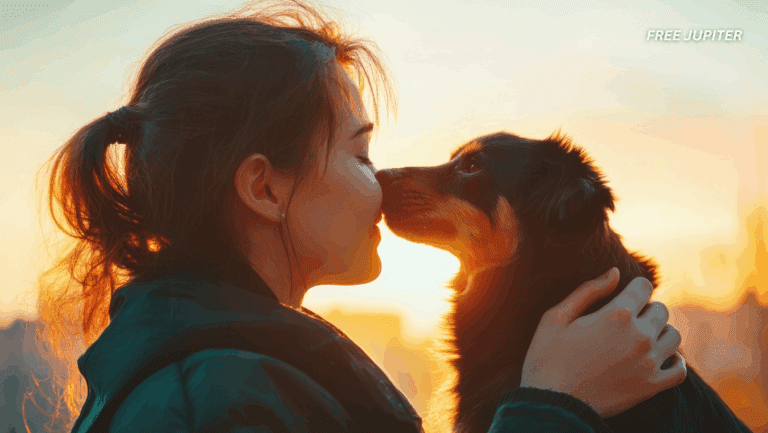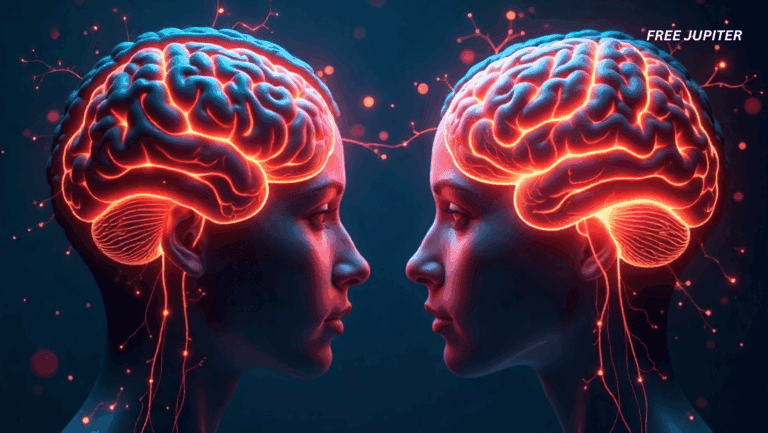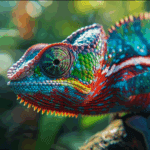In today’s fast-paced world, where productivity often feels like the ultimate measure of success, most people barely make it through their daily to-do list before collapsing into bed. Between emails, errands, and endless responsibilities, there’s hardly a moment left for anything that doesn’t feel “essential.”
But what if the very thing we keep pushing aside—something fun, creative, and even a little messy—is exactly what we need not just to survive, but to thrive?
According to new research, people who make time for creative hobbies—especially those involving arts and crafts—are doing a lot better than the rest of us in terms of happiness, calmness, energy levels, and even mental health.
The Study That Started It All: Why Arts and Crafts Matter
In a fascinating study conducted by researchers at the University of Otago in New Zealand, participants who regularly engaged in artistic activities—such as painting, drawing, writing, sewing, or playing music—reported feeling significantly “happier, more relaxed, and more energized.” These weren’t professional artists or seasoned creatives. Many were everyday people who simply allowed themselves to play with color, sound, or words.
The study tracked participants over 13 days, noting their emotional state in relation to their creative activities. The result? A consistent boost in mood the day after engaging in something creative. This suggested that creativity doesn’t just provide a momentary distraction—it helps improve overall emotional wellbeing.
And yes, this includes adult coloring books. (So don’t be shy about breaking out that rainbow pack of pencils.)
Read more: Your Favorite Kitchen Sponge Might Be Polluting Your Drinking Water, Scientists Say
Not Just “Artistic” People—Creativity is for Everyone
A common misconception is that only “talented” people can be creative. But the truth is, creativity isn’t about talent—it’s about expression. You don’t need to be able to paint a lifelike portrait or compose a symphony. In fact, the benefits of creative hobbies don’t depend on skill level at all.
Activities like baking, journaling, pottery, embroidery, gardening, calligraphy, and even decorating your bullet journal all count as creative outlets. Reddit users have expanded the definition even further to include things like nail art, makeup design, origami, sticker crafting, and personalized gift wrapping. The key ingredient? Enjoyment.
As Dr. Tamlin Connor, the lead author of the Otago study, noted: “Engaging in creative behavior leads to increases in well-being the next day, and this increased well-being is likely to facilitate more creative activity on the same day.”
In other words, creativity creates a positive feedback loop. The more you do it, the better you feel—and the better you feel, the more likely you are to keep doing it.
Creativity as a Mental Health Tool
Another 2024 study published in Frontiers in Psychology went even deeper. It found that creative hobbies weren’t just helping people feel temporarily good—they were changing the way people saw life itself.
Participants reported feeling that their lives were more meaningful after spending time on creative pursuits. They described a stronger sense of purpose, reduced anxiety, and greater emotional balance. In a world filled with stressors—from global uncertainty to personal burnout—that’s a powerful benefit.
Psychologist Dr. Mark Travers added, “Creativity isn’t about being good at something. It’s about letting go of judgment and simply enjoying the process. Creative hobbies are like food for your soul. They allow us to process emotions that feel overwhelming and help us see beauty in the everyday.”
Think of creativity as an emotional detox: you let the stress out through color, texture, rhythm, and motion.
Read more: Scientists Say Mushrooms ‘Speak’ To One Another Using Up to 50 Distinct Words
Aging, Hobbies, and Long-Term Health
The benefits don’t stop at emotional well-being. There’s also growing evidence that creative hobbies support physical and cognitive health as we age.
A 2023 meta-analysis that reviewed data from older adults (aged 65 and up) found that those who regularly engaged in hobbies—especially artistic ones—reported better health outcomes, lower rates of depression, and a stronger sense of life satisfaction. These individuals were also more socially connected and cognitively sharp than their peers who had no regular hobbies.
In contrast, older adults without creative or recreational hobbies were more likely to experience loneliness, boredom, and symptoms of mental decline.
Creative hobbies act like exercise for the brain—stimulating memory, attention, and fine motor skills. Plus, they give people a reason to look forward to each day, even after retirement.
So, What Isn’t Considered a Creative Hobby?
Interestingly, not everything you enjoy counts as a “creative” hobby in the psychological sense. Passive activities—like watching TV or scrolling through social media—don’t stimulate the brain in the same way. While they can feel relaxing, they don’t provide the same emotional lift or long-term benefits as hands-on, imaginative engagement.
That’s not to say you should never relax with your favorite show. But if you’re feeling emotionally stuck, picking up a creative activity might be a more powerful mood shifter than your usual Netflix binge.
How to Start (Without Putting Pressure on Yourself)
The most important rule? Don’t turn your hobby into another obligation. If you treat it like a chore or a “self-improvement” project, it loses its magic.
Instead, start small. Try something that sparks curiosity or brings a sense of nostalgia. Were you into scrapbooking as a kid? Try making a vision board. Did you love music? Pick up a beginner’s ukulele or keyboard. Have a closet full of mismatched socks? Maybe now’s the time to learn how to sew.
The idea is not to impress anyone—but to reconnect with yourself. Your hobby should feel like a pocket of joy carved out from a busy week, not another item on your to-do list.
Read more: Neuroscience Explains Why Children Learn Quicker Than Adults
Final Thoughts: Don’t Wait for a “Talent” to Appear
You don’t need to be “creative” in the traditional sense to reap the benefits. In fact, waiting to feel confident or skilled before starting is the opposite of how creativity works. You just start. Play. Explore. Make a mess.
Whether it’s doodling while you’re on a Zoom call, decorating cookies with friends, learning hand lettering, or writing short stories no one else reads—your brain and your emotions will thank you.
So the next time you feel mentally foggy, emotionally drained, or just plain bored with life, skip the doomscrolling. Reach for something creative instead.
Who knows? You might just find that you’re not only surviving your days—but genuinely enjoying them.
As for me? I’m giving learning French another shot. I’ve failed five times already—but maybe this time, I’ll illustrate my flashcards with watercolor. At least I’ll enjoy the process.










